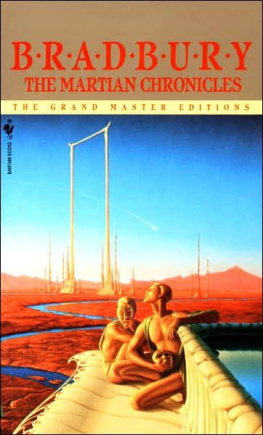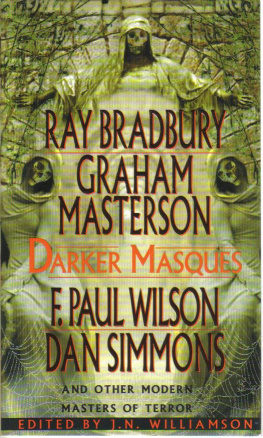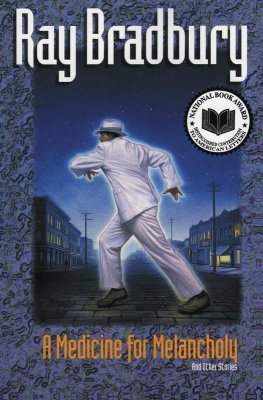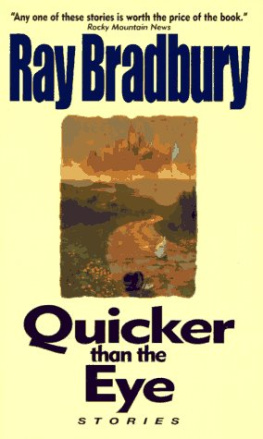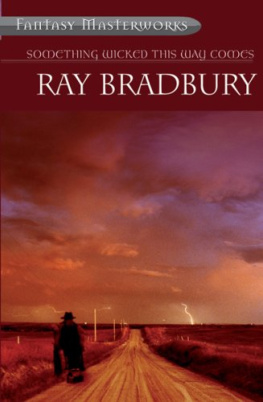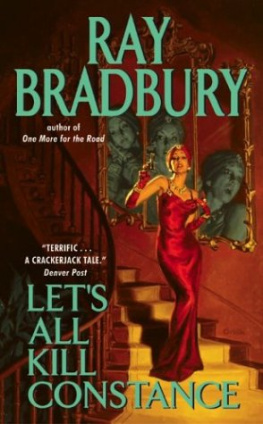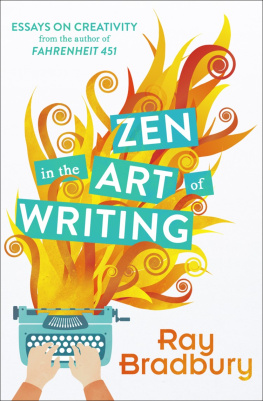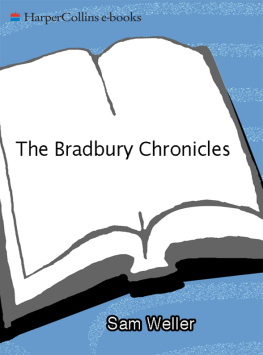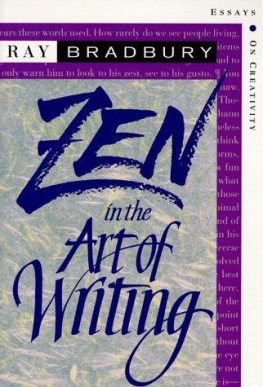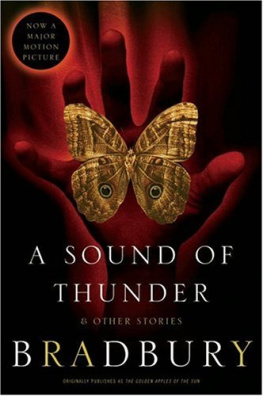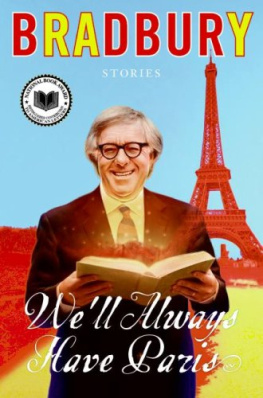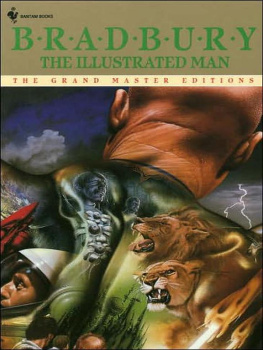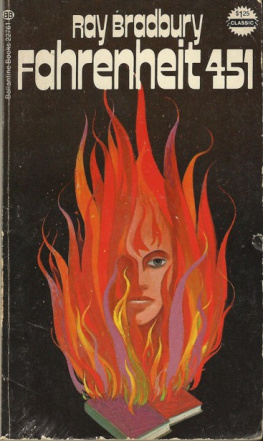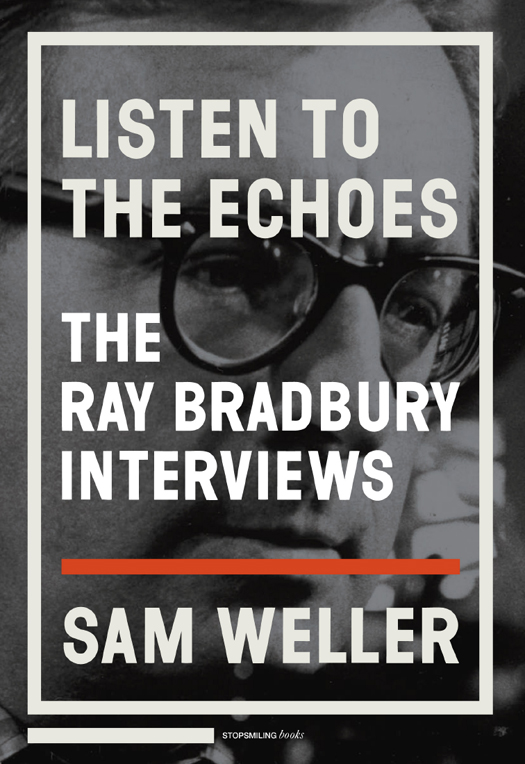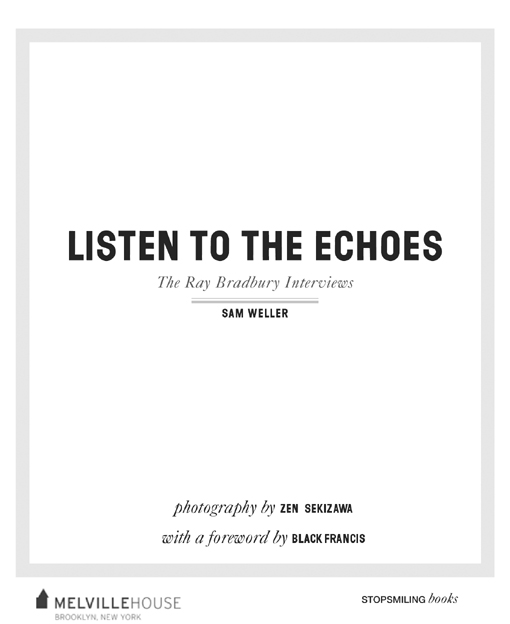LISTEN TO THE ECHOES
Listen to the Echoes
The Ray Bradbury Interviews
2010 Sam Weller
First Melville House printing: June 2010
Melville House Publishing
145 Plymouth Street
Brooklyn, NY 11201
Stop Smiling Books
1371 N. Milwaukee Avenue
Chicago, IL 60622
www.mhpbooks.com
www.stopsmilingbooks.com
eISBN: 978-1-61219-230-7
Cover Photograph: Photofest
Unless otherwise credited, all archival photographs courtesy of Ray Bradbury
Library of Congress Control Number: 2010926572
v3.1
CONTENTS
For my two amazing fathers
WILLIAM WELLERandRAY BRADBURY
FOREWORD
In the beginning there was no Ray Bradbury, just his words. I had no need for Ray Bradbury the man, because I had his words. I was fourteen years old and I was deep into his words. The Illustrated Man. The Martian Chronicles. The October Country. At that time I probably couldnt have told you why I liked his books; I just did. I cant even really explain it now, but I read them and they prompted me to start writing down my own words. My high school English teacher gave me permission to ignore lessons so I could just write. He was validating my creative instincts, but Ray Bradbury had validated me first.
Now I think of Ray Bradbury the man, and I often think of pizza in a cardboard box. The first time I ever saw his face he was eating a take-out pizza. There were probably 400 other people there in the room at Chatsworth High School in the San Fernando Valley. I was in my 30s, and we were all watching Ray Bradbury eat his pizza. It didnt bother anyone that he didnt offer to share, which would have been silly because of the size of the crowd. He apologized for having the pie brought in at the end of his speech, but he had given it his all and he was hot and tired and he needed fuel. He wasnt going to take it in the back room because he knew we all wanted his autograph. Four hundred people waited in line patiently to get something signed, including me, and to perhaps exchange a few personal words with the man who had us under his spell, most of us long before that day. He had told us about his life, about the many things he loved, his ups and downs, his adventures, about space, writing, movies, war, fear, comedy, love, death, horror, ecstasy; he seemed to be relishing the whole thing, and so it was so satisfying for us to see him, of course, loving his pizza.
I heard him speak again a couple of years later, and one time I even got to interview him on the telephone for the LA Weeklya milestone for me. But those words in his books still caress with love. The words are not all happy, but they are all beamed out from a heart hopelessly in love. They can be dark yet they whisper sweet, sweet love. Ray Bradbury loves you. He loves the whole damn thing, from the most distant burning star to your silly haircut. Its a Jacques Tati love, a Yoko Ono love, an Alfred Hitchcock kind of love. Its not fiction. Its a human saying yes to life itself, yes, yes, yes. Ray Bradbury validates not only humanity but every molecule in this exploding soup of a universe. This is the spirit that haunts his words, the spirit that shines through on every page of this fascinating book of interviews.
I made a record called The Cult of Ray, which has a song on it called The Cult of Ray. The rhyme can be called weak, but I think it expresses my feelings about him.
What is there to say?
Still I cant be silent
Hear the Cult of Ray
And youll be enlightened
Black Francis
Los Angeles, California
LISTEN TO THE ECHOES
INTRODUCTION
Ray Bradbury once wrote a teleplay for a short film titled, The Great Shout of the Universe. It was a musing on the miraculous formation of the cosmosa classic Bradburian consecration of life and creation. Looking over the conversations contained in this bookinterviews that I conducted with the author over the course of nearly a decadeit becomes readily apparent to me that with his film title, Bradbury could well have been referring to himself.
He is outspoken, vociferous, brimming over with joie de vivre. He is a confetti storm of a man, a celebratory blizzard of color and kinetic energy. He is also undaunted when it comes to sharing his often controversial opinions, from politics, to faith, to the state of contemporary cinema and much more. All of this emerges in the pages of this book.
Bradbury is one of the great idea men of twentieth century literature, a remarkably prolific writer who has explored his many philosophies, moral viewpoints, and humanistic themes through a colorful prism of poetic language and fantastic fable. Literary critics, scholars, and mainstream readers alike have hailed him for his imaginative concepts, rich use of metaphor, and lyrical language.
In There Will Come Soft Rains, the house of the future goes through its daily machinations, even after humanity has been eradicated by nuclear annihilation: The voice clock still sings the hour, the stove browns toast and fries eggs, robotic mice glide to and fro, vacuuming the living space of the recently deceased.
In The Swan, a young man at the beginning of his life meets an old woman at the end of her days, and they come to realize that they are soul mates who have met at the wrong point in time.
In A Sound of Thunder, a time traveler steps on a butterfly and returns to the present to find his world irrevocably altered. (Through this tale, the term butterfly effect entered the language as a metaphor for our smallest daily decisions having universal implications.)
And, of course, with the October 1953 publication of his opus, Fahrenheit 451, Bradbury established himself as a visionary. In this dystopian masterwork, he predicted, among other technological and cultural prognostications: flat panel televisions, ear-bud headphones, 24-hour banking machines, live television broadcasts of fugitive chases, the rise of teen violence and school shootings, the decline of newspapers, and the demise of literary reading. Yet with all of Ray Bradburys vision, originality, and prolificacy (some 600 published short stories and seventy significant trade and limited edition books), little has been done to document the personal philosophies and opinions that have inspired so many of his narrative concepts. Even in the biography I wrote, The Bradbury Chronicles: The Life of Ray Bradbury (William Morrow, 2005), there was only so much latitude to examine the authors contemporary viewpoints.
And Bradbury tells it like it is. He is a deeply opinionated man. And why shouldnt he be? As I write this, Bradbury is on the precipice of entering the rarified realm of the nonagenarian. Through so much of his nine decades of life, he has encountered, known, and worked with a sweeping roster of historical and cultural notables. As a child, he sat on the knees of Civil War veterans. Later, as the oft-recognized poet of the rocket age, he befriended many of the Mercury and Apollo astronauts, who, incidentally, read his books and were inspired to dream for the stars.
From the veterans of Antietam, to the veterans of the Sea of Tranquility, Ray Bradbury has witnessed and celebrated a century of unprecedented global progress and change. His is a quintessentially American story.


